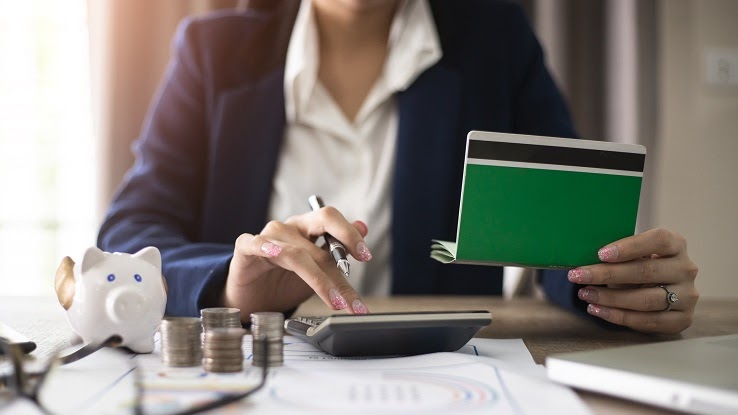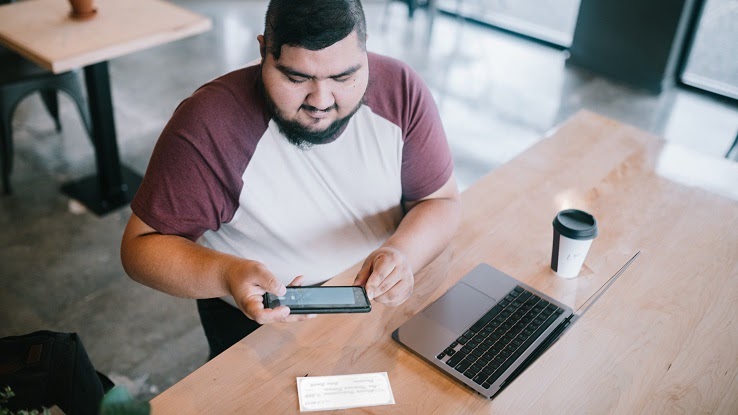how to check what is using your internet

Opening a checking account is an important step in taking command of your personal finances. Having a checking account also makes it easier to receive payments from the regime and businesses. For instance, many people with agile checking accounts receive income tax refunds quicker than taxpayers who await on paper checks. Many businesses pay employees through directly deposits into checking accounts.
People who take checking accounts also have access to debit cards, which allows a person to pay for goods and services electronically without using credit. I key feature of having a checking account is the ability to write checks, and there are many instances in life where writing a check is the nigh prudent method of payment, such as a deposit for rent.

Checking accounts are the near common types of banking concern accounts that people use for everyday cyberbanking. A customer can put coin into a checking account by depositing cash, depositing a check, or receiving a directly deposit. A directly eolith involves giving a business, usually an employer, a routing number and banking concern account number. Then, that business organization is able to electronically deposit money directly into your banking company account without having to hand information technology to yous first.
People can withdraw money from a bank account by withdrawing cash from a bank or ATM. To spend money in a bank account, customers tin can write checks, set automatic transfers (these are similar to direct deposits and allow an individual to ship money to a concern electronically,) or use a debit card. A debit card tin be swiped like a credit card, but the money on the menu comes from a person's checking account.
Each month, banks transport customers statements that requite a detailed bookkeeping of all deposits, withdrawals, interest, and fees associated with the account. Many banks offer online banking, where customers with checking accounts can view transactions and transfer funds through a website or an app.
Types of Checking Accounts

Banks offer several different types of checking accounts to match the dissimilar financial situations customers have. Each type of checking business relationship, even if it is from the same banking concern, may have unlike standards for minimum balances, interest rates and service fees.
Although many individual banks have a variety of checking account options, checking accounts by and large fall into ii main categories: Personal checking accounts and business checking accounts.
Business Checking Accounts
A business organisation checking account has higher fees and more enhanced features than a personal account. This type of account is only for businesses, and frequently requires the signature of a business owner to set up. Many banks as well inquire for documents identifying the legal name and purpose of the business as well equally the individuals who can sign for the business.
Personal Checking Accounts
Any person anile 18 or older can open up a personal checking account. These accounts allow people to handle their day-to-twenty-four hour period financial transactions, involving receiving money and paying expenses.
There are no credit checks involved in opening upward a checking account, merely some banks use a customer'southward name and address to check their cyberbanking history. If a person has a history of bouncing checks — writing checks for more money than is in their account — or of using a debit menu to pay expenses higher than what is in their business relationship, other banks may deny their application for a checking account.
Some banks allow minors of a certain age to open up upwards articulation checking accounts with a parent or legal guardian. Depending on state laws and the age of the kid, the parent volition likely be the simply person able to write checks or use the debit card associated with the account.
How to Open a Checking Account

Opening a checking business relationship is as elementary as filling out an awarding. All banks brand applications available in person at any local branch, and many banks also have online applications available.
The application will enquire basic demographic questions such equally the customer's name, address, birth date, telephone number, and social security number. On the application, a customer may also be able to plant a PIN number and login credentials for online cyberbanking.
The approval process for an application is usually very quick. As long as the person does non have a poor banking history, the bank will usually open the account immediately.
What Do You Need to Open a Checking Account?

To open a bank business relationship, a customer needs to bear witness who they are and where they live. Many banks crave one to two forms of government-issued identification. This can be a driver'south license, permit, passport, war machine ID card, social security menu, or birth document among other documents. Some banks even ask for a utility bill, such as ane from an electric or h2o company, to prove the applicant's accost.
Anyone opening a depository financial institution account should also have at least $25 in greenbacks with them. Although some banks do non, most banks require a person opening a new account to make an immediate deposit of the minimum balance for the account, which is ofttimes $25.
Cost of Opening a Checking Business relationship

Opening upwardly a checking account is unremarkably gratuitous. Even if opening an account is free, though, there tin be costs continued to using your business relationship. Those costs or fees vary greatly between banks and types of accounts.
Hither is a common scenario among banks that charge fees: There is no cost to open a checking account, merely the account holder must immediately deposit the minimum residue corporeality into their account. At most banks, the minimum balance is a modest number, such as $25, and the account holder must keep at least that much in the account at all times to go along their checking business relationship open.
Some banks also charge monthly maintenance fees, usually ranging between $1 and $25, for having an account open. Banks often waive monthly maintenance fees for customers who run across a goal dollar amount of monthly direct deposits or maintain a sure balance in their business relationship for the full statement flow.
In general, business checking accounts have higher monthly fees and college minimum deposit and/or minimum monthly transaction standards than personal checking accounts. However, in that location are some banks that specialize exclusively in business cyberbanking and offer accounts with low fees, costs, and minimum deposits.
Checking Account Interest

Mostly, checking accounts earn a very small corporeality of interest each month, and some checking accounts do non earn interest at all. According to the FDIC, the boilerplate interest rate on personal checking accounts in America is 0.03%. This is some other number that can vary greatly depending on the policies of the depository financial institution and the type of checking business relationship that you have.
Although information technology is rare, there are some banks, ordinarily online ones, that offer high yield checking accounts. These are checking accounts with much higher interests rates, usually betwixt 0.l% and 1.00%. These accounts crave large opening deposits and big minimum balances of $10,000 or more.
The best mode to get clear details nearly opening a checking account is to speak to a bank teller or business relationship manager. The process is quick and easy.
Source: https://www.askmoney.com/budgeting/open-checking-account?utm_content=params%3Ao%3D1465803%26ad%3DdirN%26qo%3DserpIndex
0 Response to "how to check what is using your internet"
Post a Comment